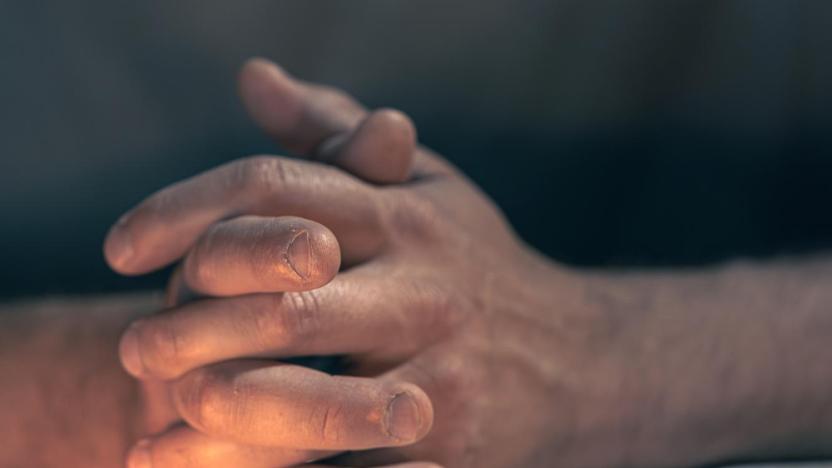Have you ever wondered how long you should keep praying about something? Many people wonder about this dilemma, and quite frankly I have asked myself this very question a time or two. I have a prayer journal that I have kept for quite a few years. It records many answered prayers. But then there are many prayer requests about which I have been bombarding the throne of God for which I have not seen any answer — yet. Should I stop praying about them?
I found myself looking for the answer in the word of God, through the experience of others. An example is Hannah in 1 Samuel Chapter 1. This woman was one of the two wives of Elkanah. The Bible says that Elkanah loved Hannah, though she was barren, for the Lord had shut up her womb. It seems from the account that this distressing reality went on for several years, as every year Elkanah would travel to Shiloh to worship and sacrifice to the Lord. His two wives, and his children by his other wife, named Peninnah, would go with him to sacrifice. Every year, Peninnah would taunt Hannah and make fun of her because she had no children. Talk about adding insult to injury! Hannah went about in tears, and her pain was so severe that she would not even eat. Her husband did not understand. He loved her. He showed his love in tangible ways and felt that it should make her feel better and fill the void. He meant well. Often in life, we have pain that others do not understand. But God does. Finally, the Scriptures say that after a sacrificial meal at Shiloh one year, Hannah got up to pray in the temple. I am thinking that over the years, she probably was always saying some type of prayer to God to have children. Surely she did not wait several years to finally start praying, but we do not really know exactly. In any case, she prayed; fervently. She prayed so much with such zeal and earnestness of heart that Eli the priest thought she was drunk. She received some encouragement from Eli and got up off her knees encouraged. The Bible says that in due time she gave birth. She prayed until something happened.
Then there is King David. After his adulterous affair with Bathsheba, a child was conceived. Nathan the prophet told David that the Lord was going to be gracious enough to spare his life, but the child would definitely die. Nathan departed from David, and the Scriptures say that the Lord struck the child, and he was very sick. David prayed; he fasted. He lay all night upon the earth in earnest prayer. Like Hannah, he would not even eat. After seven days, the child died. He prayed until something happened.

One happy ending; one sad ending. They both prayed…until something happened. In Hannah’s case, she got the hoped-for child. In David’s case, he did not. But it is interesting what David did do, when it was obvious that he would not get the desired answer to his prayer. The Scripture says that when his servants told him the sad outcome, he did not fall apart. He was not angry or bitter. He rose from the earth, washed, and anointed himself, changed his apparel and came in the house of the Lord and worshipped. From what we see in the life of David, especially in the Psalms, he was an expressive type of man, full of emotion and pathos in all that he did, whether good or bad. I can imagine that his worship experience to the Lord that day, even through the disappointment and pain, was one of praise and thanksgiving, not for what happened, but for God’s goodness in spite of what happened.
In Hannah’s case, possibly during the times of earnest prayer with unmet outcomes, she sought not only to obtain the much wanted child, but for the Lord to create something within her to keep her commitment to God after the child was born, instead of making the child an idol unto herself. She promised God during those harrowing times of prayer that if she had a male child, she would commit him to the Lord all the days of his life, and that she did without hesitation.

Call to Pray Differently
Is it possible that one of the purposes of prayer is not just to get what we want, but what God wants? What if we kept praying for the sole purpose of just becoming? Becoming what God wants for us, aside from our actual requests? What if we just P.U.S.H? Pray until something happens — to us and not necessarily our circumstances. To be more trusting of God; to be more holy; to be more compassionate; to know God better and experience Him even through pain or disappointment? The very act of prayer changes us. It makes us better. Prayer is a relational interaction, not just a service transaction. Faith is a necessary element that says we trust God no matter the outcome. So sometimes we have to pray until something happens. That something may be more careful listening, humility, persistence, and a deeper love for God than what we originally expected or probably wanted to give.
Call to Action: Pray Until Something Happens
Luke 18:1 tells us to always pray and not lose heart. Jesus wants to grow our faith. In whatever we ask in prayer, we should believe that God knows what he is doing, even if we do not see it outright. Do not give up. It may be an opportunity to experience something deeper, richer, and more intimate than the request itself. P.U.S.H.
Further Study: 1 Samuel 1:1-28; 2 Samuel 12:15-20; Hebrews 11:1,6; Mark 11:24





